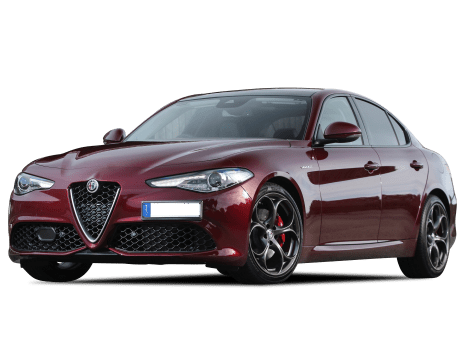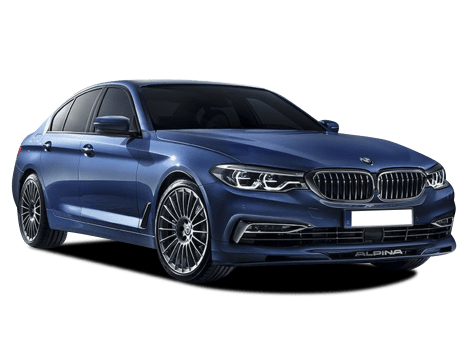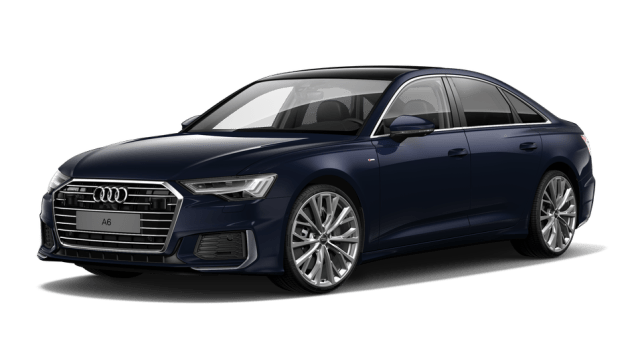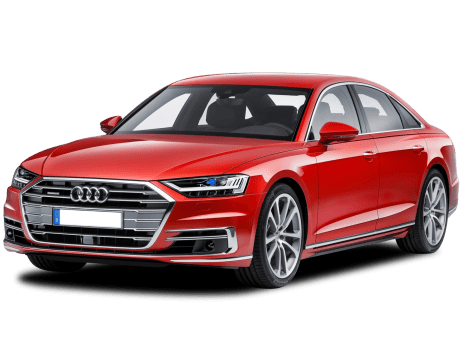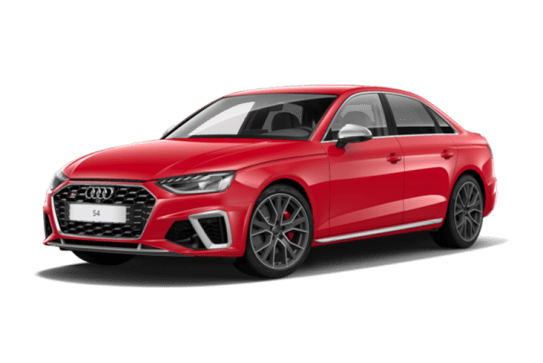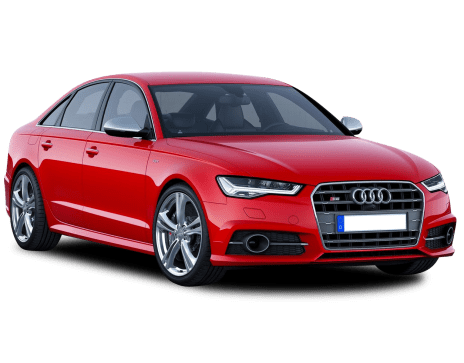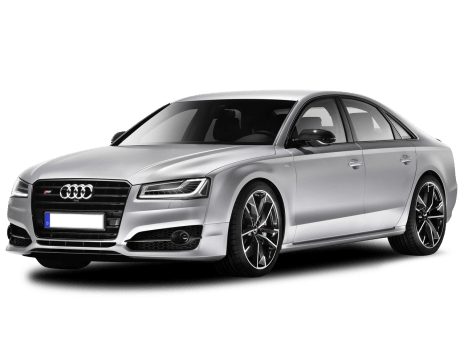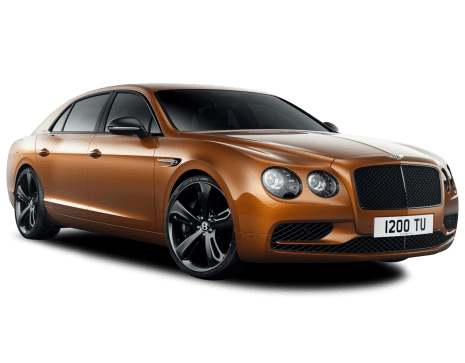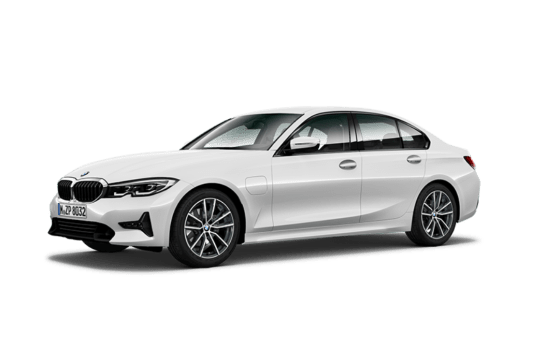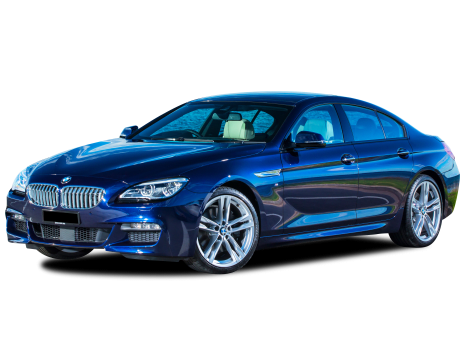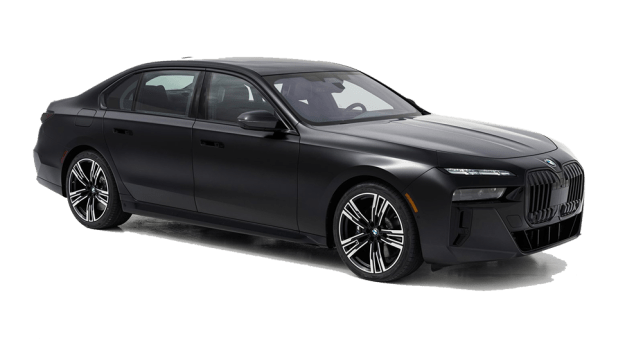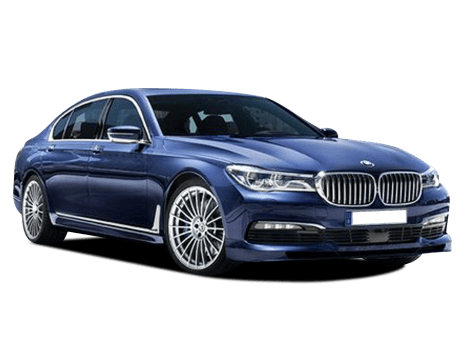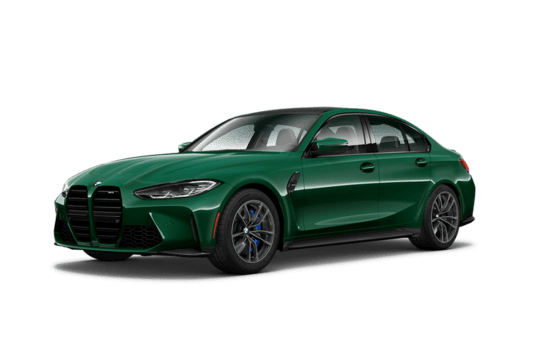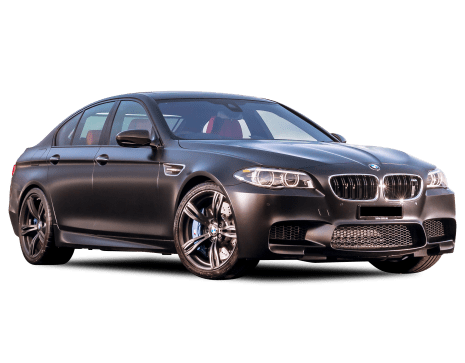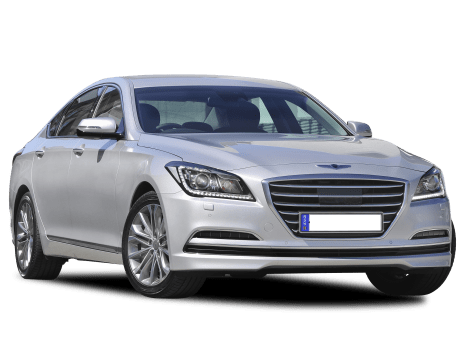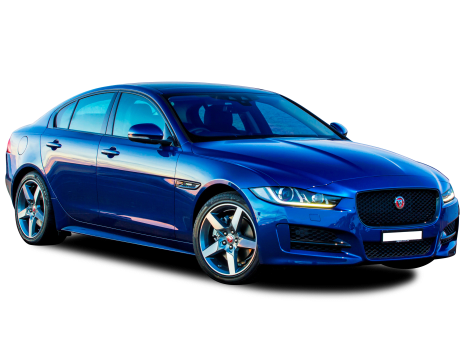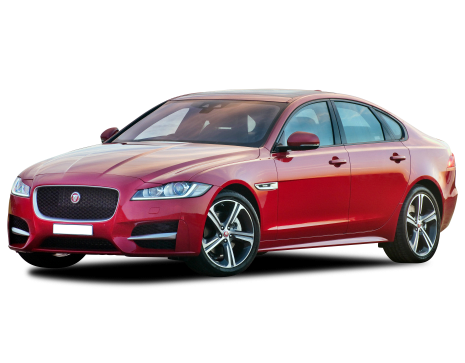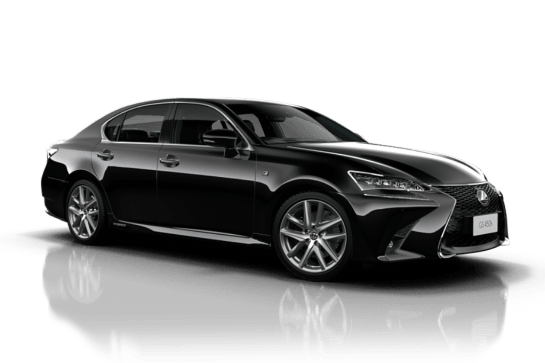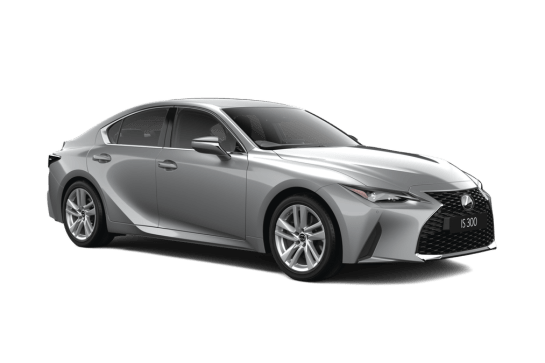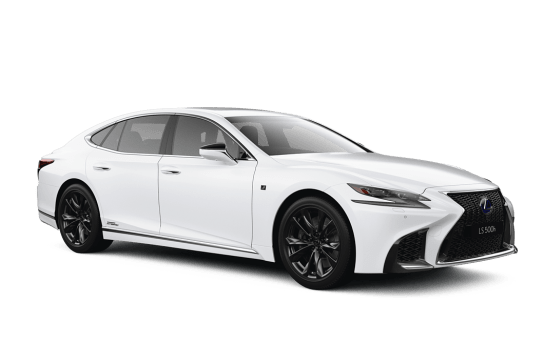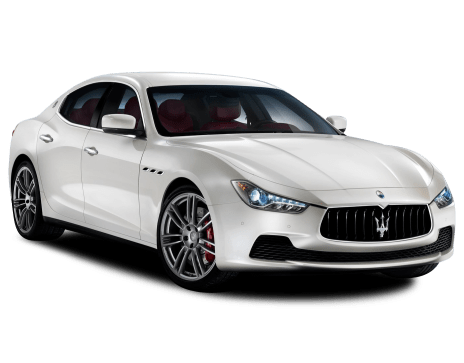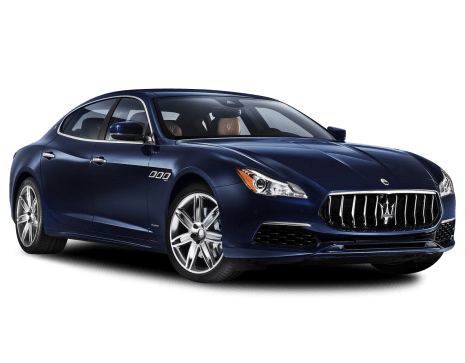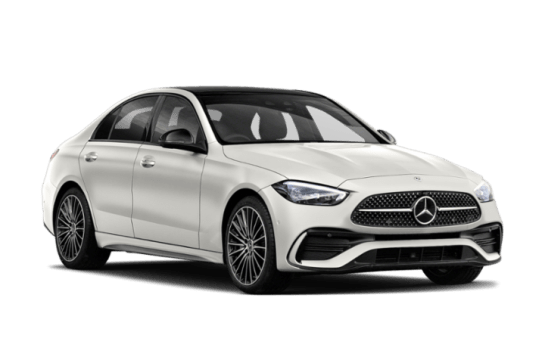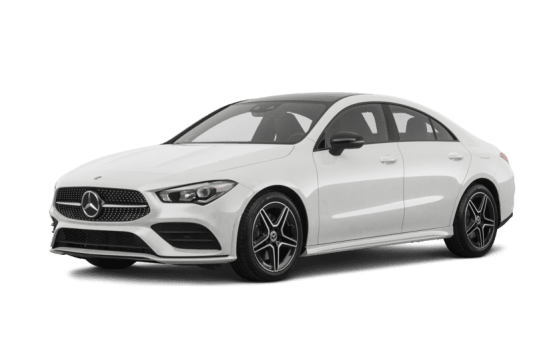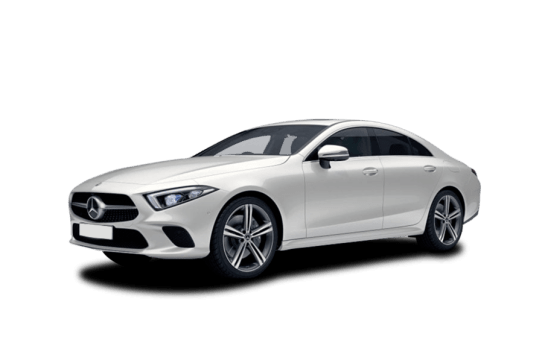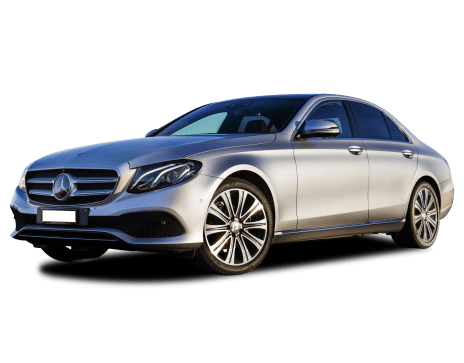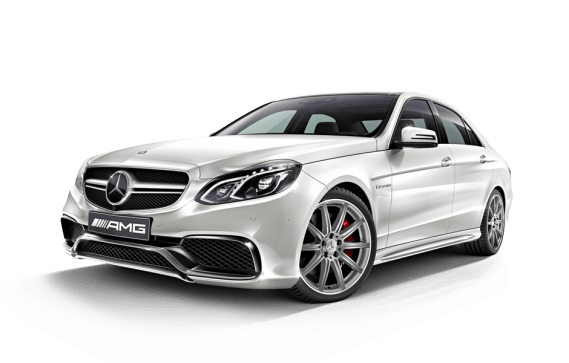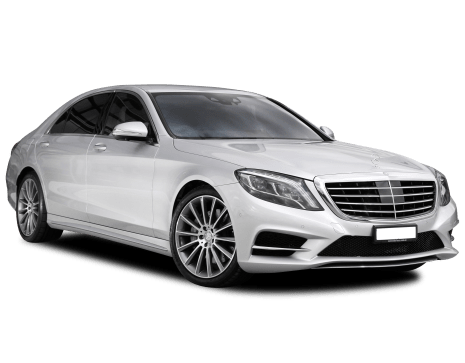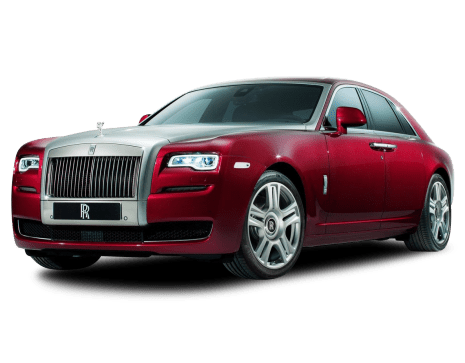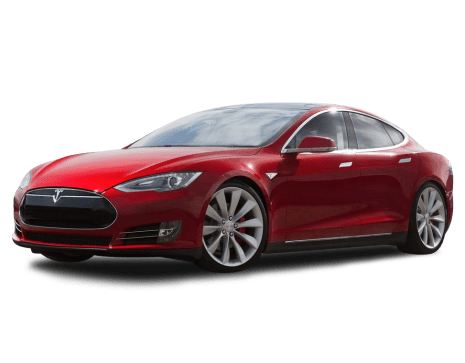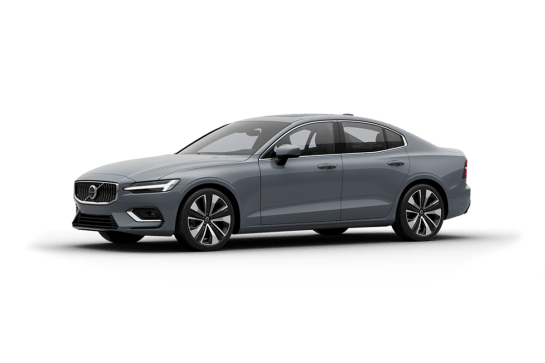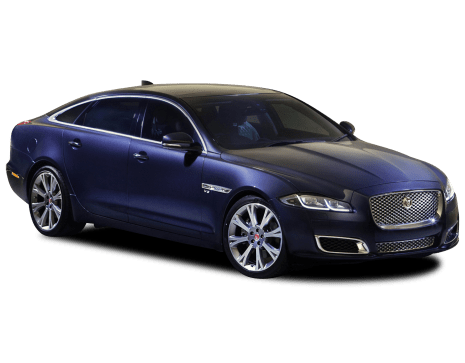
Jaguar XJ VS Mercedes-Benz S-Class
Jaguar XJ
Likes
- Characterful supercharged V8
- Agile handling with great ride
- Individual looks
Dislikes
- Options pricing
- InControl software a bit ordinary
- Too much in-cabin chrome
Mercedes-Benz S-Class
Likes
- S-Class' return to splendour
- Stunning high-tech cabin presentation
- Outstanding ride and handling capabilities
Dislikes
- Price of entry prohibitive for most
- 3D instrumentation can make you woozy
- A tad conservative in design
Summary
Jaguar XJ
As a child, my parents - who aren't car people - would see a Jaguar and point. It didn't matter if it was an XJ, Daimler Double Six or a Mark II, there was a great deal of mystique around these bastions of Britishness. It also didn't matter that these weren't necessarily good cars. The Seventies and Eighties saw the brand slide into a funk while being passed between owners like hot potatoes.
Somehow, the brand survived its brush with Ford's useless Premier Automotive Group strategy which only came good towards the end as Jaguar's management woke up and put in place a change in direction that produced the Ian Callum-designed XF. Riding high on that design, Jaguar then promptly introduced the very pretty Jaguar XJ.
It has been on sale for ages, but with the addition of a few bits and bobs to stay competitive, it's as compelling as ever. Most importantly, the performance-focused R has kept its unique supercharged V8.
| Safety rating | |
|---|---|
| Engine Type | 5.0L |
| Fuel Type | Premium Unleaded Petrol |
| Fuel Efficiency | 11.6L/100km |
| Seating | 5 seats |
Mercedes-Benz S-Class
It's only in the running for the title of world's best luxury car. No biggie here, then.
Like Rolex and Concorde, S-Class has become a byword for ultimate, and deserved or not, the Mercedes-Benz defines its segment despite the best efforts of the BMW 7 Series, Audi A8, Lexus LS and (sadly now-defunct) Jaguar XJ, as well as pointing the way forward with new technologies that eventually trickle down to more proletarian models.
Replacing the half-million selling W222 unveiled in 2013, the W223 is the latest in a long line since the first W187 Ponton debuted in 1951, and includes the famous ‘Finnies' and Stroke-8 models that followed immediately afterwards, but it is the 1972 W116 that really set the template.
Now, seven generations in, the 2021 S-Class is all-new again, with progressive safety and interior features that should help keep it Australia's bestselling full-sized upper-luxury sedan.
| Safety rating | |
|---|---|
| Engine Type | 3.0L turbo |
| Fuel Type | Premium Unleaded Petrol |
| Fuel Efficiency | 8.4L/100km |
| Seating | 5 seats |
Verdict
Jaguar XJ7.5/10
It might be old and facing German competition bursting with advanced technology, but the XJR is still a car you can buy with heart and head. But mostly your heart. It goes like stink, has a much better interior than the Quattroporte and is more interesting than just about anything this big or this grand.
It's also a better car than the Maserati Quattroporte if you want to get on with the driving yourself and is far prettier than the Porsche Panamera. It's a wonderful thing and even more wonderful that Jaguar continues to build it. Long live that supercharged V8 and the XJ is a great home for it.
Is the XJ your cup of Earl Grey or are you more interested in a Maserati espresso (sorry) or a Porsche stein (sorry, again)? Tell us what you think in the comments below.
Mercedes-Benz S-Class8.5/10
Mercedes-Benz set out to restore the S-Class' place amongst the greatest sedans in the world.
In the heavily-optioned, near-$250K-plus S450 as well as the extended S450L at $300K as tested (the sweet spot of the range for now), we reckon the Germans have succeeded, pushing safety, comfort and technology boundaries, in a package that is true to the heritage of the series.
Tax-fuelled sky-high prices will certainly keep the S-Class niche in Australia, but the car is more than good enough to dominate its tiny corner of the upper-large luxury car sphere.
The best new car in the world? We reckon it's highly likely. Mission accomplished, Mercedes.
Design
Jaguar XJ8/10
The XJ has a marvellously exaggerated length, with a rear overhang redolent of Jag's sporting coupe and roadster pair of the time of its launch, the XK. There's nothing else in the segment like it, with the three Germans - Mercedes' S-Class, Audi's A8 and BMW's 7 Series - having gone all Hugo Boss and and in the latter two's case, almost shrinking violet. The only credible Japanese alternative, the Lexus LS, looks like a Lexused 7 Series. The XJR is a more emotional car, like Maserati's Quattroporte.
The R adds an aggro grille, 20-inch wheels with low-ish profile tyres, a bootlid spoiler, red brake calipers and vents in the bonnet. Bits and pieces get the black gloss treatment and there are V8 and R badges, as well as a rather large leaper on the bootlid. Capping it all off are four exhausts poking out from the bumper and distinctive vertical taillights.
Inside remains largely unchanged. The cabin is big and luxurious, leather-lined and very, very comfortable. The front air vents have to be modelled on the de Havilland Comet's integrated jet engine intakes and, again, the dash design stays away from the horizontal lines of its obvious competition.
There is probably a bit much chrome for my liking, particularly on the centre console and around the rotary dial shifter, which reflects sunlight into your face during the day.
The lovely 'Riva Hoop' - a band that sweeps from door to door across the top of the dash - is a great touch and remains a defining feature in the cabin. The last update brought an Audi-like digital dashboard, including maps, but it's not nearly as slick as the German. The graphics for the dials are good (and quick) but the maps are a bit so-so.
Mercedes-Benz S-Class7/10
Most Mercedes models have followed the Russian Doll-style cookie-cutter styling theme, and the heavy family look continues with the W223.
Still, the flush door handles do add a touch of Tesla-esque modernity, while the elegant silhouette and clean lines are in keeping with the luxury aspirations. Larger in every dimension compared to the old W222, the S450 is some 71mm-longer in wheelbase (3106mm) than before while the LWB's has stretched out by 51mm (3216mm), benefiting proportions as well as interior packaging.
AMG-branded wheels look sporty but – in the S450 at least – they're perhaps a tad too gangster. A set of flush alloys would give it a more-modern and techier appearance, in our opinion.
Overall, however, the S-Class ‘7' possesses the prerequisite richness of design. It isn't as bold and mould-breaking as models like the W116 were back in their day, but the styling is still a success.
By the way, the latest S-Class is the first Mercedes to employ the MRA2 longitudinal platform, which is rich in lightweight steels (50 per cent aluminium), is correspondingly stronger than before but also 60kg lighter.
With a drag co-efficiency rating as low as 0.22Cd on some overseas grades, the W223 is one of the most aerodynamic production vehicles in history.
Practicality
Jaguar XJ7/10
It might be over five metres long, but the Jag's cabin isn't as gigantic as that might suggest - luckily, if you want space, the XJ L has it. The SWB version is roomy enough, though, just not palatial. You can fit five people, but the big transmission tunnel will limit the size of that fifth.
Front and rear passengers have a pair of cupholders each, with rubber bubbles to help hold smaller cups in tight. The front and rear doors have pockets but aren't really for bottles.
Boot space is a reasonable 520 litres, with a space saver spare under the floor.
Mercedes-Benz S-Class10/10
For the beginning of our day with the S-Class, we were chauffeured from home to a mansion in Kew, a blue-chip Melbourne suburb. Our heavily-optioned S450L featured most of the aforementioned extras – including the Business Class Package and Rear Entertainment Package – and the experience was predictably, sumptuously memorable.
Reclining individual rear seats with easy-reach tablets, armrests offering access to all multimedia and available climatised and massaging cushions and backrests... we're no longer in our normal ride, Toto.
Yet, all these trinkets and gizmos are mere add-ons, that can turn a stretched Caprice into a flash hen's night carriage if enough money and glitz is thrown at it.
No, the new S-Class must impress in an altogether less tangible and more philosophical manner, involving all the senses, and not just what we see, hear and touch. It must appeal beyond the superficial. Otherwise, it is not a large Mercedes-Benz luxury sedan in the classic manner.
This is a Herculean task for the Stuttgart designers and engineers. By and large, though, the Three-Pointed Star has succeeded in achieving something special.
In its perception of peerless quality and engineering, the W223 is striving to move forward and look back simultaneously to the glory days of the seminal W126 (1980-1991). This is through meshing traditional virtues like solidity and quality materials while dazzling its passengers with technology that is still friendly enough to want to enhance your experience.
You can sink into the soft lounge seats, watch the world pass by silently outside and never be aware of the road underneath or the engine ahead. Double glazing, exquisite and aromatic fabrics and materials and lush tactile surfaces work their magic inside the car, while an airtight and aero body, solid platform, air suspension and a muted yet muscular powertrain all do their thing underneath. The atmosphere is special and rarefied. That's what an S-Class needs to be and that's what is happening in our $299,000 (as tested) S450L.
The same more-or-less applies up front, as the same trim, leather, wood and technology surrounds the driver and passenger. The spectre of the car that is surely The Car of the Last Decade – Tesla's Model S – is evident in the portrait touchscreen and sparse, almost wallflower dashboard design and layout. No big imposing architectures here.
Yet, while the American upstart actually takes stuff away, the S-Class packs the cabin with subtle features that – like when the planes stopped flying last year and the birdsong subsequently returned – only become obvious once the cabin's design simplicity clears all the white noise for you to be in a better frame of mind to enjoy them.
Take the haptic interface, for example, as it is perhaps the best we've experienced; the sense of well-being garnered from the cumulative effects of profound seat comfort (the massaging function was never switched off), cocooning micro climate environmental control, orchestral levels of audio entertainment and the theatre of light and vision performed by the two available screens; it is an automotive experience like no other. And the eye-tracking 3D-effect navigation set within the electronic instrumentation. No need for cinematic glasses to get the effect. The driving position itself, by the way, is also first class.
Room to stretch and grow for sure, and in every direction. But room for improvement? You betcha.
Your tester had a headache after a little while staring at that woozy 3D map. The central vents – four at the front, two in the rear – look and feel cheap, leaving us mentally redesigning them; they are frightfully out of place here; the carryover column-stalk auto lever should have been binned in 2005. And, even though the digital instruments have a number of options, none are elegant enough for the S-Class. That's an especially subjective criticism, clearly, but one that – in the context of classic Mercedes luxury sedan contenders – is justified given how timeless the Bruno Sacco era of Daimler design was. Look him up, kids.
Still, after a couple of hours behind the wheel, with our senses reset to calm, it is obvious that the S-Class cabin is a unique and wonderful place – as it should be at a cool quarter-of-a-million dollars.
Job done.
PS At 550 litres (20L more than before), the boot is massive and luxurious enough to sleep in.
Price and features
Jaguar XJ7/10
As is expected at this level, Jaguar was not mucking about with price or specification - the XJR starts at a mildly terrifying $299,995, which is very close to the rather more tranquil Autobiography long-wheelbase relax-o-mobile.
Standard are 20-inch alloys, a 20-speaker stereo, power everything with three memory positions, four-zone climate control, keyless entry and start, front and rear parking sensors, heated and cooled front and rear seats, sat nav, LED headlights and DRLs, leather everywhere, auto wipers and (LED) headlights, electric boot lid, heated steering wheel and a space saver spare.
The Meridian-branded stereo is an absolute cracker, powered by the improved but still laggy 'InControl Pro' system. Oddly, it's all crammed into an 8.0-inch touchscreen when there is seemingly room for the larger (and better-performing) 10.0-inch screen. The software is far superior than the version that preceded the last update, but the screen is hard to use, as targets are placed right in the corners and are hard to hit.
Apple CarPlay and Android Auto are also absent, and the sat nav is still fairly dopey.
A long list of options are available, some of which should probably be included in the big sticker price - DAB+ ($620), premium paint is a splutter-worthy $2060 (although, to be fair, the vast majority of the 19 colours are free), adaptive cruise with queue assist ($2200), adaptive headlights a further $2620 and 'Parking Assist', which adds side sensors and a front camera, a further $2780. Reverse cross traffic alert, blind spot monitoring and forward collision warning cost yet another $1460. Ouch.
Mercedes-Benz S-Class8/10
Right now, only two S-Class models are available – the S450 from $240,700 plus on-road costs and the 110mm extended-wheelbase S450L (LWB) for another $24,900 on top. Most buyers overwhelmingly opt for the latter.
Despite what the numbers may suggest, both are powered by a 3.0-litre in-line six-cylinder turbo petrol engine, delivering 270kW of power and 500Nm of torque to all four wheels via a nine-speed torque-converter automatic. Greater choices are coming later, including an all-electric version known as the EQS.
Almost every conceivable safety item is standard on the S-Class, including world-first rear-seat airbags located behind the front seats in the LWB model, taking the surround-airbag count to 10.
You'll also find route-based Speed Adaptation (adhering to the posted speed limits), Evasive Steering Assist (a sophisticated form of crash mitigation), adaptive cruise control with active stop/go, Active Lane Change Assist that automatically moves the car into the lane you indicate to), Mercedes' PreSafe crash-preparation tech that primes all the safety systems for impact, electronic stability program that encapsulates all the active driver-assist tech, Active Emergency Stop Assist, Autonomous Emergency Braking front and rear (including for cyclists and pedestrians), Traffic Sign Assist, Parking Package with Active Parking Assist and 360-degree camera and tyre pressure monitors.
On the equipment front there is the latest iteration of Mercedes' MBUX multimedia system with (another) world-first 3D display, complementing an OLED central display, powered closing doors, leather upholstery, air suspension, leather upholstery, velour floor mats, a multi-beam LED headlight system with adaptive high beams, heated and folding exterior mirrors, heat and noise-insulating acoustic glass for front side windows, dark privacy glass for rear windows, sunroof, roller sunblinds for rear windows, metallic paint and 20-inch AMG alloy wheels on runflat tyres.
Want cutting-edge multimedia? There's MBUX II's augmented reality for navigation and fingerprint scanner, as well as a more natural-speech Mercedes-Me Connect voice activation with global search.
Plus, predictive navigation with live traffic, parked vehicle locator, vehicle tracking, emergency call, maintenance management and tele-diagnostics, digital radio, Burmester 3D surround-sound system with 15 speakers and 710W amplifier, remote door locking/unlocking, geofencing, speed-fencing, valet parking, head-up display, Smart Phone integration with Apple CarPlay/Android Auto, wireless charging, ambient lighting, two-zone climate control, poplar wood trim, electric adjustment for front seats, steering column with memory function, climatised front seats, keyless entry/go with flush-fitting door handles offering hands-free access (including for the electric boot),
Besides the ‘forward facing' airbag for the rear-seat occupants, the S450L also scores electrically adjustable rear seats with memory and automatic rear climate control.
Key options – and the list is massive – include an $8700 Rear Entertainment Package, that brings rear-multimedia access, rear tablets with wireless headsets and rear-seat wireless smart phone charging, an AMG Line pack with a body kit, different alloys and larger front brakes ($6500), Business Class Package that includes aircraft-style reclining rear seating and tray tables ($14,500), Nappa leather ($5000), augmented-reality HUD ($2900), 21-inch wheels ($2000) and four-wheel steering ($2700). There's also a $14,500 Energising Package with contoured seating, heated-everything and massaging seats.
Please keep in mind our test cars featured many such extras. Tick all the boxes and you can add nearly $100,000 to the price of your S-Class.
So, is the S450 good value? Given some of the breakthrough safety and luxury features it offers, it is unique. Too bad the Federal Government's Luxury Car Tax makes them so much more expensive than they need to be.
Under the bonnet
Jaguar XJ9/10
Jaguar's lovely 5.0-litre V8 with supercharger continues under the XJ's long and shapely bonnet, delivering a walloping 404kW and a tyre-shredding 680Nm. The sprint to 100km/h for all 1875kg of XJR is completed in an impressive 4.6 seconds, which was very competitive at the car's launch in 2009.
Power reaches the rear wheels via ZF's eight-speed automatic and you can control it with the tacky plastic paddles on the steering wheel. Oh, and it has stop-start.
Mercedes-Benz S-Class9/10
Where are the V8s?
Right now, the only W223 you can buy is powered by an all-new 2999cc 3.0-litre in-line direct-injection six-cylinder turbo petrol engine dubbed the M256, complete with double overhead cams, an electric compressor intercooler and assistance from a 48-volt mild hybrid system and integrated starter-generator, adding 16kW and 250Nm to the 270kW of power at 6100rpm and 500Nm of torque from 1600-4500rpm.
The 9G-Tronic torque-converter automatic transmission and 4Matic all-wheel drive system combination is a first for the S-Class in Australia.
Top speed is limited to 250km/h, while the 0-100km/h sprint-time takes just 5.1 seconds in both models. Impressive for a two-tonne-plus luxury limo.
Efficiency
Jaguar XJ6/10
The combined cycle figure for the V8 is listed at 11.1L/100km but fully expect to see the 16.1L/100km we got, especially as you try and fail to tyre of the monstrous power delivery and lovely (if muted) V8 roar.
Luckily, even if you're belting it, the 82 litre tank is a generous size and you'll cover a fair amount of ground.
Mercedes-Benz S-Class7/10
With the aid of the mild-hybrid system, the S450 returned a combined average of an impressive 8.2 litres per 100km, which translates to 187 grams of carbon dioxide emissions per kilometre. 95 RON premium unleaded (or higher) is recommended. In the urban run it consumes 11.3L/100km (11.5 for S450L), and just 6.4L/100km (6.5 for S450L) in the extra-urban result.
At 76 litres, the fuel tank will allow a combined average range of about 927km between refills.
Driving
Jaguar XJ8/10
Indecently quick, surprisingly agile and heaps of fun. While the first descriptor applies purely because of its size, the next two shouldn't when you're in command of 5.13 metres of motor vehicle. As with the Audi and now the 7, the Jag has a lot of aluminium to help keep the kilos off and good gracious, it has worked.
The R is based around the short wheelbase version of the XJ for perhaps obvious reasons. Even so, it appears to be the shorter-again XF's because this thing turns in like a demon. No, it won't stay with the dearly-departed XF-R but it does a mighty fine impression of one, just with a better ride quality.
Rear seat passengers should be prepared to feel a lot of wheelslip, especially when in Dynamic mode, as even the fat Pirelli P-Zero's struggle for purchase when the right foot hits the carpet. The V8 rumbles rather than bellows, but the rears cheerfully spin up until the computers and active differential rein things in. Traction control off and you've got a proper tyre-smoker if you're not playing by the rules. Jag's engineers are clearly hooligans at heart.
As always, ZF's eight-speed transmission does an incredible job of marshalling the horses in a rearward direction and when you're not after a bit of sound and light, have achieved a tremendous amount with the damping. When in normal mode, the car glides along, so much so that the lady of the house wasn't so sure it was a sporting sedan.
Once she was apprised of dynamic mode (you have to cycle the button through winter mode first, for some reason), her only complaint was that it was too long and the steering wheel too big for this type of car. I was persuaded of the latter, especially after stepping out of an Audi S3 which has a tiny wheel. Long story short, the XJR is now 'her' car (to be more accurate, the XFR is, but that hasn't arrived yet, so...), as it felt smaller than it was when not parking and she's a sucker for a torquey V8.
Mercedes-Benz S-Class10/10
In former times, as the Germans say, a ‘450' on the boot indicated V8 power. In the W116 S-Class era it was one of the world's most evocative badges when ‘SEL' was also attached.
As mentioned earlier, though, it's the M256 3.0-litre turbo-petrol with a 48-volt ‘mild hybrid' electrical system that's doing the driving, to all four wheels. The real V8 W223 will probably surface later this year or in early 2022 with the S580L flagship. Bring it on.
This is not to say that S450 isn't good enough. With that electrified assistance, the blown straight six is smooth and swift off the line and rapid as the auto seamlessly steps up through all nine gears. Because it's so hushed and refined, it doesn't feel 5.1s to 100 clicks quick, but watching the speedo says otherwise – acceleration is assertive and strong right up way past the legal speed limit.
All that's missing is the burbling soundtrack of a classic Benz bent-eight. Oh well. Outstanding economy is a price we're literally willing to pay in lieu.
Even more impressive is the S450's ability to hustle along mountain roads like an overgrown sports sedan.
Now, for Australia, all S-Classes are fitted standard with an adaptive ‘Airmatic' air-suspension set-up, including air springs and self-levelling tech. In Comfort up to 60km/h, the ride height can be raised by 30mm, or lowered by 10mm under the standard 130mm baseline in Sport at any velocity, while in Sport+ it falls another 17mm.
With that in mind, yes, the standard air suspension performs a magnificent job smothering out most surface imperfections around town. Yet its real other party trick is to tighten up the chassis when corners get interesting and Sport mode is selected. Aided by progressively weighted and reassuringly responsive steering, the Mercedes tips into turns with precision and poise, slicing through with virtually no discernible body lean or understeer.
Now, we're not talking a leisurely drive on rural highways here, but Healesville's famous Chum Creek Road, where even a Porsche Cayman would feel like it's had a strenuous dynamic workout. The S-Class can be hurried along with confidence and finesse, displaying outstanding handling and roadholding for a 5.2-metre long limo. And the fact that the ride quality only suffers marginally when the red horns are out is all the more remarkable.
Back in the cut-and-thrust of inner-city peak-hour traffic, the Benz in Comfort mode continued to reveal its driver-orientated yet passenger-focused twin-personalities, zipping in and out of gaps while remaining comfy and composed inside.
Only when parking in tight spots are you truly aware that the W223 is longer than a Mazda CX-9. The optional four-wheel-steering system is claimed to slash the turning circle to A-Class hatchback levels. 10.9 metres is the claim.
The 2021 S-Class never ceases to amaze and delight.
Safety
Jaguar XJ7/10
The whole XJ range has six airbags, ABS, stability and traction controls, emergency brake assist, reversing camera, three top tethers and two ISOFIX points. The XJ doesn't have an ANCAP safety rating.
Mercedes-Benz S-Class10/10
The W223 S-Class has not been crash-tested yet by ANCAP or European affiliate EuroNCAP, so does not have a star rating. However, Mercedes-Benz claims it has striven to create one of the safety vehicles on the planet. Who are we to argue?
Almost every conceivable safety item is standard on the S-Class, including world-first rear-seat airbags located behind the front seats in the LWB model, taking the surround-airbag count to 10.
You'll also find route-based Speed Adaptation (adhering to the posted speed limits), Evasive Steering Assist (a sophisticated form of crash mitigation), adaptive cruise control with active stop/go, Active Lane Change Assist that automatically moves the car into the lane you indicate to), Mercedes' PreSafe crash-preparation tech that primes all the safety systems for impact, electronic stability program that encapsulates all the active driver-assist tech, Active Emergency Stop Assist, Autonomous Emergency Braking front and rear (including for cyclists and pedestrians, at speeds from 7km/h to over 200km/h), Traffic Sign Assist, Parking Package with Active Parking Assist and 360-degree camera and tyre pressure monitors.
The Active Lane Keeping Assist works in a speed range of between 60km/h and 250km/h while Active Steer Assist helps the driver follow the lane at speeds of up to 210km/h.
Ownership
Jaguar XJ8/10
Jaguar offers a three year/unlimited kilometre warranty and roadside assist for the same period.
Like the F-Type, XJ owners benefit from three years/100,000km free servicing.
Mercedes-Benz S-Class7/10
Unlike many luxury brands that persist with a sub-par three-year warranty, Mercedes-Benz offers a five-year/unlimited kilometre warranty.
Intervals are every year or 25,000km, with a capped price service plan starting at $800 for the first year, $1200 for the second year and $1400 for the third year, totalling $3400. Alternatively, there is a Service Plan starting at $2700 for the first three years (saving $700 from the normal capped-price service plan), $3600 for four years and $5400 for five years.


